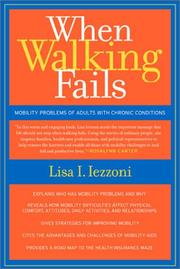| Listing 1 - 2 of 2 |
Sort by
|
Book
ISBN: 0520972007 Year: 2019 Publisher: Berkeley, CA : University of California Press,
Abstract | Keywords | Export | Availability | Bookmark
 Loading...
Loading...Choose an application
- Reference Manager
- EndNote
- RefWorks (Direct export to RefWorks)
In Syndicate Women, sociologist Chris M. Smith uncovers a unique historical puzzle: women composed a substantial part of Chicago organized crime in the early 1900s, but during Prohibition (1920-1933), when criminal opportunities increased and crime was most profitable, women were largely excluded. During the Prohibition era, the markets for organized crime became less territorial and less specialized, and criminal organizations were restructured to require relationships with crime bosses. These processes began with, and reproduced, gender inequality. The book places organized crime within a gender-based theoretical framework while assessing patterns of relationships that have implications for non-criminal and more general societal issues around gender. As a work of criminology that draws on both historical methods and contemporary social network analysis, Syndicate Women centers the women who have been erased from analyses of gender and crime and breathes new life into our understanding of the gender gap.
Organized crime --- Female offenders --- Female offenders. --- 1900s. --- chicago. --- contemporary social network analysis. --- crime bosses. --- criminal opportunities. --- criminal organizations. --- criminology. --- female gangsters. --- gender based framework. --- gender inequality. --- general societal issues. --- historical methods. --- historical puzzle. --- non criminal. --- organized crime. --- profitable crime. --- prohibition. --- relationships. --- territorial. --- women.

ISBN: 159875002X 9786612762901 0520937120 1282762907 9780520937123 0585467854 9780585467856 0520238192 9780520238190 9781598750027 9780520237421 0520237420 0520237420 661276290X 9781282762909 Year: 2003 Publisher: Berkeley : New York : University of California Press ; Millbank Memorial Fund,
Abstract | Keywords | Export | Availability | Bookmark
 Loading...
Loading...Choose an application
- Reference Manager
- EndNote
- RefWorks (Direct export to RefWorks)
Roughly one in ten adult Americans find their walking slowed by progressive chronic conditions like arthritis, back problems, heart and lung diseases, and diabetes. In this passionate and deeply informed book, Lisa I. Iezzoni describes the personal experiences of and societal responses to adults whose mobility makes it difficult for them to live as they wish-partly because of physical and emotional conditions and partly because of persisting societal and environmental barriers. Basing her conclusions on personal experience, a wealth of survey data, and extensive interviews with dozens of people from a wide social spectrum, Iezzoni explains who has mobility problems and why; how mobility difficulties affect people's physical comfort, attitudes, daily activities, and relationships with family and friends throughout their communities; strategies for improving mobility; and how the health care system addresses mobility difficulties, providing and financing services and assistive technologies. Iezzoni claims that, although strategies exist to improve mobility, many people do not know where to turn for advice. She addresses the need to inform policymakers about areas where changes will better accommodate people with difficulty walking. This straightforward and engaging narrative clearly demonstrates that improving people's ability to move freely and independently will enhance overall health and quality of life, not only for these persons, but also for society as a whole.
Public Policy --- Movement Disorders --- Gait --- Chronic Disease --- Chronic diseases --- Movement disorders. --- Diseases, Chronic --- NCDs (Noncommunicable diseases) --- Non-communicable diseases --- Non-infectious diseases --- Noncommunicable diseases --- Diseases --- Dyskinesia --- Dyskinesias --- Motor disorders --- Disabilities --- Nervous system --- Movement Disorder Syndromes --- Dyskinesia Syndromes --- Etat Marbre --- Status Marmoratus --- Dyskinesia Syndrome --- Movement Disorder --- Movement Disorder Syndrome --- Psychomotor Disorders --- Chronically Ill --- Chronic Illness --- Chronic Diseases --- Chronic Illnesses --- Disease, Chronic --- Illness, Chronic --- Illnesses, Chronic --- Pain Management --- Gaits --- Locomotion --- Walking --- Affirmative Action --- Migration Policy --- Population Policy --- Social Protection --- Social Policy --- Action, Affirmative --- Migration Policies --- Policies, Migration --- Policies, Population --- Policies, Public --- Policies, Social --- Policy, Migration --- Policy, Population --- Policy, Public --- Policy, Social --- Population Policies --- Protection, Social --- Public Policies --- Social Policies --- Policy Making --- Social Control, Formal --- psychology --- Complications. --- american adults. --- arthritis. --- back problems. --- chronic conditions. --- chronic health conditions. --- diabetes. --- disabling conditions. --- emotional conditions. --- health care system. --- health policy. --- healthy society. --- heart disease. --- improve mobility. --- lung disease. --- medicine. --- mobility difficulties. --- mobility problems. --- nonfiction. --- personal experiences. --- physical disabilities. --- policymakers. --- public health. --- quality of life. --- social relationships. --- societal issues. --- textbooks. --- walking.
| Listing 1 - 2 of 2 |
Sort by
|

 Search
Search Feedback
Feedback About UniCat
About UniCat  Help
Help News
News